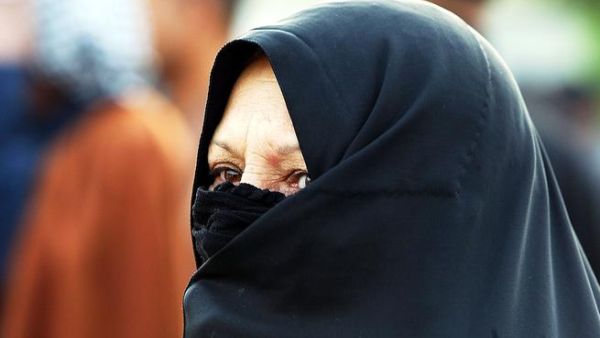Karima has a plan. If police stop her for wearing a veil over her face, she’ll remove it - then put it back on once they’re out of sight. If that doesn’t work, she’ll stay home, or even leave France.
For Muslim women who cover their faces with veils, it is the moment for making plans.
From Monday, April 11, a new law banning garments that hide the face takes effect. Women who disobey it risk a fine, special classes and a police record.
The increasing focus on France’s Muslims - who number at least five million, the largest such population in western Europe - comes with presidential elections a year away and a far-right party resurging.
France’s challenge is evident in the Paris suburb of Trappes. It has a large Muslim population and is one of the few towns in France where, before talk of a ban surfaced, veiled women were occasionally seen on the streets.
At the town hall, the subject of the impending crackdown is taboo. Some predict police will turn a blind eye to any veils to keep things tranquil. “I have a choice to take it off. I choose not to,” said Karima, 25, shopping at the outdoor market.
Karima is forthright, though she refuses to provide her full name because of her defiant stance on the ban. Others are not so willing to talk. Two women veiled in black scurried away when approached.
“The problem of veils and so on become public issues because people are afraid,” said Farhad Khosrokhavar, a noted expert on Islam in France. “It’s a process of scapegoating and it works beautifully.”
Yesterday, President Nicolas Sarkozy’s governing conservative party was discussing ways to strengthen secularism in French society at a politically charged conference that Muslim leaders fear could stigmatize Islam.
The UMP party was to consider 26 ideas such as banning the wear of religious symbols by day-care personnel and preventing Muslim mothers from wearing head scarves when accompanying school field trips.
The debate could lead to a legislative bill in the National Assembly, where the UMP has a majority. Its backers say debate is needed to address evolutions in French society - such as a growing demand for mosque building and Islamic butchers - since the country’s 1905 law formally separates the state from the Catholic Church.
Detractors, however, see a sheer political ploy to lure potential voters as Sarkozy’s popularity keeps sinking and the extreme-right National Front is getting a second life under its new leader, Marine Le Pen, the daughter of party founder Jean-Marie Le Pen. While Le Pen’s party performed well in local elections in March, Sarkozy’s party suffered a drubbing.
Muslims have felt stigmatized by the 2004 law banning Islamic headscarves in classrooms and again during the intense debate that preceeded the face veil ban. Muslim leaders are now so irked they have refused any role in the discussions.
France’s top religious leaders - Catholics, Protestants, Orthodox Christians, Jews, Muslims and Buddhists - published a joint statement last week saying the debate could add “to the confusion in the troubled period we are traversing”.
Abdallah Zekri, a member of the High Council of Mosques of France from the southwestern city of Nimes, claims Arabs are being targeted. “Muslims will always be scapegoats,” he said. “We no longer talk about immigrants. We talk about Muslims.”
In unusual terms for a secular leader, Sarkozy extolled the virtues of his country’s “Christian heritage” during a recent visit to Puy-en-Velay, the starting point of a famed medieval Christian pilgrimage route. “Without identity there is no diversity,” the president said.
“The (French) republic is secular. It belongs to each citizen without any distinction.”
Muslim women who choose to cover their faces with veils may doubt that they belong.
The measure banning the veil forbids women to hide their faces in public places, even in the streets. It punishes those who defy the law with a fine of €150 ($210), a citizenship course, or both.
Anyone discovered forcing a woman to cover her face risks a year in prison and a €30,000 ($42,000) fine - doubled if the veiled person is a minor. Authorities estimate about 2,000 women in France wear the garment.








